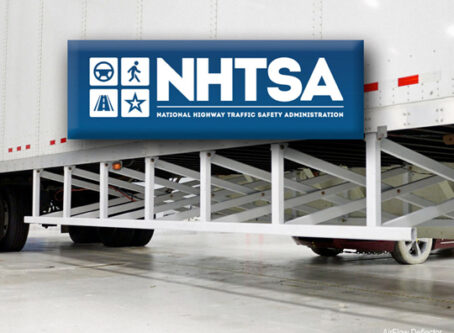Nearly 13,000 illegally issued traffic tickets in Iowa will not be refunded
Despite a previous ruling that found commercial vehicle patrol officers cannot issue speeding tickets to passenger vehicles, the Iowa Supreme Court recently decided that motorists cannot get a refund on those tickets issued.
On May 14, the Iowa Supreme Court affirmed a lower court’s decision to dismiss a case against the state of Iowa and the Iowa Department of Transportation. The high court found that tickets illegally issued by IDOT Motor Vehicle Enforcement officers are nonrefundable. Consequently, the state is off the hook for millions of dollars after the Iowa Supreme Court ruled in 2018 that speeding tickets went beyond the scope of the officers’ duties.
The most recent case against IDOT’s Motor Vehicle Enforcement division was initially filed by Rickie Rilea in November 2016. That case accused officers of illegally issuing speeding tickets to passenger vehicle motorists. According to the lawsuit, nearly 13,000 citations unrelated to that division’s authority were issued. In fact, that division issued more of those tickets than citations related to its duties relating to operating authority, registration, size, weight and load of commercial vehicles.
In October 2018, the Iowa Supreme Court sided with Rilea.
The court relied on two statutes that pertain to IDOT’s enforcement authority: Iowa Code sections 321.477 and 804.9. At the time of the citations in question, section 321.477 regulated IDOT peace officers by stating the following (emphasis added):
“The department may designate by resolution certain of its employees upon each of whom there is hereby conferred the authority of a peace officer to control and direct traffic and weigh vehicles, and to make arrests for violations of the motor vehicle laws relating to the operating authority, registration, size, weight, and load of motor vehicles and trailers and registration of a motor carrier’s interstate transportation service with the department.”
The Iowa Supreme Court interpreted this to mean the statute did not provide authority for arrests relating to other traffic violations.
Section 804.9 deals with arrests by private persons, which states a private person can make an arrest “for a public offense committed or attempted in the person’s presence.” However, the statute does not extend to individuals who are not private citizens, including DOT officers. Even if it did, it does not give authority to issue citations.
Rilea’s lawsuit also sought to refund illegally issued tickets, citing unjust enrichment. After the 2018 Iowa Supreme Court ruling that confirmed the citations were illegal, IDOT moved to have that count dismissed.
Despite finding IDOT is not entitled to sovereign immunity and that it was unjustly enriched, the district court dismissed the claim based on the idea that the unjust enrichment claim was an improper collateral attack on the traffic ticket.
According to the Iowa Supreme Court, a collateral attack is an attempt to overturn a judgment before a court other than the one that rendered it, in an action other than the one in which it was rendered, in “an attempt to avoid, defeat, or evade it, or deny its force and effect, in some incidental proceeding not provided by law for the express purpose of attacking it.” In other words, the lawsuit attacked a previous court judgment instead of directly appealing. In this case, the attack is against the criminal conviction regarding the traffic ticket.
“Rilea is entitled to the return of money he paid if what he paid belonged to him and not to the state,” the Iowa Supreme Court states. “But the money Riley paid was owed to the state as court debt because Rilea was adjudicated guilty in state district court. And court debt is ‘owed and payable to the clerk of the district court.’ The fine is separate from the underlying citation. The payment Rilea made was a product of a court’s adjudication.”
Rilea never claimed that the speeding conviction never occurred. During litigation, he admitted that he committed the charged traffic offense.
In the eyes of the Iowa Supreme Court, when the state received the payment from Rilea, it was “only doing what it was entitled to do based on a final and firm judgment.”
Therefore, payment of the fine would only be illegal if the conviction were overturned. That conviction has never been challenged, let alone overturned. Any attempt to file an appeal to that criminal case now would be too late. Consequently, this particular lawsuit would be deemed a collateral attack.
As a result, the state is off the hook to refund nearly 13,000 illegally issued tickets, likely totaling millions of dollars. LL









